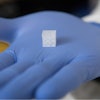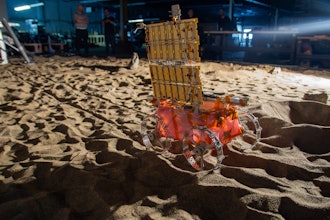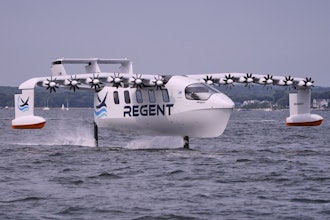Uber Patents Drunk Surge
Uber is looking for an upgrade and this one might be able to tell if you're drunk while hailing the car service. According to reports from Gizmodo and CNN, Uber filed a patent application to use machine learning (artificial intelligence) to determine a passenger's "state" when confirming a ride.
The Uber app will track typos, monitor click precision, as well as how long it takes for him/her to request a ride. The software will generate a prediction about the user's current condition.
CNN interviewed Harry Campbell, a blogger who suggested that drivers may get extra money for transporting drunk passengers. Personally, I'm all for it, and in my experience, Uber can nearly double the price and still be cheaper than a cab.
According to Gizmodo, the software could improve driver safety by allowing him/her to skip unpredictable fares. Although, some may argue that it's the inebriated passengers who need protecting.
Actually, since Uber just said that it is going to start conducting annual background checks on drivers, what if this will be used to keep the creepers from the easy prey?
Until we know more, let's just call this what it is: a drunk surge.
How to Siphon CO2 to Save the World
In 2008, researchers from Arizona State and Columbia University thought of a way to battle climate change. They were going to extract CO2 directly from the air using giant pipes. The problem was cost, it wasn't commercially viable.
In a new report from Nature, Canadian researchers from Carbon Engineering have designed an air contactor that will siphon carbon dioxide from the atmosphere.
The researchers have been working on a pilot program since 2015 with a CO2 extraction plant that uses "direct air capture." Based on their analysis, the cost of extracting a tonne of CO2 from the atmosphere can range from $94 to $232, which is down from a study in 2011 that put the figure closer to $600.
The new design captures the CO2 as air blows through towers that contain potassium hydroxide. It reacts with CO2 and creates potassium carbonate. The researchers are working on a way to, after additional processing, use the CO2 to make synthetic, low-carbon fuels.
The company can produce these fuels for about $1 per liter.
Over the next three years, the company plans to build a small facility that can produce 200 barrels of fuel per day. The hope is that the proof-of-concept will lead to a commercial plant that produces 2,000 barrels per day.
Bike Balls Are Exactly What You Think They Are
As an avid cyclist with an body type that doesn't support the claim, I like to keep up on modern cycling technology and accessories — and I can't believe that it took me three years to see this one.
Bike balls are dangling bike modifiers that were initially launched as a modest crowdfunding campaign on Kickstarter back in May 2015. The company was seeking a little over $9,000 ($9,051) to manufacture these little man purses.
In less than three days, the project was fully funded, and it went on to raise $65,876.
The idea was created by a team of bold industrial designers/cyclists from Toronto who also happen to have a sense of humor. Because let's be honest, it took a set to make this set.
The designers were fed up with will normal bike LEDs that often fell off, were too small, and were often stolen. They came up with the concept because, according to them, it takes balls to ride in the city. Also, they probably saw TruckNutz.
Bike Balls have an LED inside of a silicone shell, which lights up the entire sack. The LED improved visible light from about 18 mm2 for average market solutions, to 1,872 mm2.
Like their inspirations, Bike Balls were designed to sway, which makes them grab the attention of other drivers sharing the road. They also designed an asset-loss prevention solution, which helps prevent thieves from swiping your balls: wrapping up your Bike Balls with a zip tie.
Bike Balls retail for about $15, and have become the subject of a host of hilarious videos, not to forget the campaigns to improve testicular health awareness.
Oh, and I almost forgot to say how you turn them on ... you squeeze them.
This is Engineering Design.






















